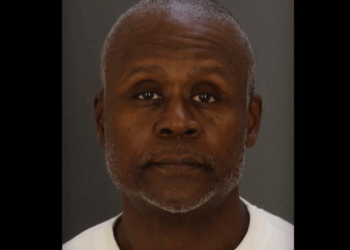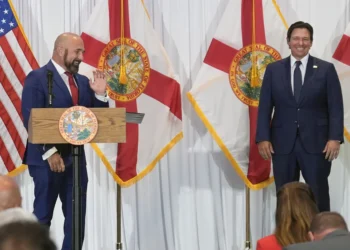One of the interesting things about parenting teenagers is how, despite your best efforts, pop culture finds its way into your home. Most recently, this has manifested itself in our watching of the second season of Netflix’s hit show Wednesday. When your soon-to-be 17-year-old daughter is borderline obsessed with the show’s pig-tailed protagonist, it’s best to go along for the ride with her.
The show’s first season came out in late 2022 and was both critically acclaimed and very entertaining, leaving viewers hungry for more. Earlier this month, the first four episodes of Season 2 dropped, and, though darker in tone and more scattered in their storytelling, they seem to be pleasing fans, prompting Netflix to announce a third season.
Though Wednesday is a lot of fun to watch for a Gen Xer like me, there is a fundamental problem with its emotional foundation, namely, its reimagining of the dynamic between Wednesday and the rest of her family. The first part of Season 2 amplifies this flaw, placing it at the center of the show and further distancing it from its roots.
Warning! Spoilers ahead for The Addams Family films and both seasons of Wednesday.
For the Addamses, Family Matters
Gen X knows the Addams Family neither from the original cartoons in the New Yorker nor the 1960s TV show (though we probably saw some episodes in syndication). Rather, our love for these characters was born from the two movies from the early ’90s.
Yet the universes of the films and the series diverge when it comes to the connections between the titular characters. In 1991’s The Addams Family, we were reintroduced to the “mysterious and spooky” family as they grappled with the disappearance of Gomez’s brother, Fester, some 20 years before. When a Fester imposter attempts to ingratiate himself in a plot to steal the Addamses’ fortune, the family embraces him as one of their own, providing the pretender (who ends up being the real Fester all along) with the love and support he never knew from the scam artist whom he believes to be his mother.
The 1993 sequel, Addams Family Values, builds on these themes by having Fester fall in love and marry a gold-digging black widow who demands that he abandon his family. As her plot to murder Fester hilariously unravels, Fester returns to the family manse, kneels before a bedridden Gomez, and cries out, “I am an Addams,” reestablishing the critical connection with his kin.
The overarching message of these two films is unabashedly pro-family. Once you get past “the creepy and the kooky,” the Addamses love each other unconditionally and spend a lot of time together. The elders pass down knowledge to an eager-to-learn younger generation and celebrate that generation’s accomplishments without reservation. Most importantly, they forgive one another when one goes astray. The Addams Family is, in short, a model for every family to aspire to (minus, of course, Wednesday’s more fratricidal tendencies).
Teenage Girl Angst with a Goth Twist
Wednesday turns its back on this positive message, replacing it with darker themes of teenage isolation, family secrecy, and generational trauma. While this shift is perhaps not surprising given our current cultural preoccupations, it’s an awkward fit for a franchise built on the principle of family. In the series, Wednesday (Jenna Ortega) is estranged from her family, especially her mother, Morticia (Catherine Zeta-Jones).
Season 1’s “fish out of water” plot structure deemphasized these issues by having Wednesday be expelled from public school and enrolled in Nevermore Academy (this universe’s version of Hogwarts). As such, her advances in emotional connection occur with her new “outcast” friends, most notably her roommate Enid (Emma Myers) and the insect-loving Eugene (Moosa Mostafa), as well as a doomed teenage romance with town “normie” Tyler (Hunter Doohan).
There remain some glimmers of purely familial affection in the first season, though. Wednesday forges a bond with Thing, the disembodied hand left behind by her parents to keep an eye on her, and genuinely smiles when her Uncle Fester (Fred Armisen) comes for a visit. When Gomez (Luis Guzman) returns for Parents’ Weekend and is imprisoned for a decades-old murder he did not commit, Wednesday reassures him that his paternal efforts have been “more than adequate” and consoles Pugsley (Isaac Ordonez) by fishing with him (using hand grenades, in true Addams style).
Righting the (Relation)Ship
So far, these moments are mostly lacking in Season 2, a missed opportunity given that Pugsley is now enrolled at Nevermore and Gomez and Morticia are living on campus to coordinate fundraising efforts for the struggling academy. Apart from “setting the ground rules” with her brother early in the first episode, Wednesday does not speak to him at all, and her only interaction with her father is during a car ride home from the police station.
Meanwhile, Wednesday’s conflict with her mother takes center stage as the two cross swords (metaphorically and literally) over Wednesday’s malfunctioning psychic powers. Morticia’s maternal desire to protect Wednesday from herself stems from a deep family secret: Morticia’s sister Ophelia had similar powers and was apparently driven mad by them. Yet her stubborn refusal to fully explain the situation to Wednesday dooms her well-meaning efforts.
For her part, Wednesday’s arrogance leads her to reject any advice her mother offers regarding her powers or anything else, ultimately resulting in the fourth episode’s cliffhanger ending. She even seeks to use her maternal grandmother, “girl boss” Hester Frump (British comedic legend Joanna Lumley), as a weapon in her war against Morticia, encouraging a cycle of resentment to continue.
Yet the drama inherent in parent-teen relationships can only dominate the narrative so far, even in a family as morbidly quirky as the Addamses. While Wednesday’s narcissistic rejection of authority drives the plot forward, she remains a dutiful daughter by protecting Morticia from a rogue zombie after losing the duel. The awkwardly earnest Pugsley does the same for Gomez, screaming, “Not my dad!” while shocking the same zombie through a wall. These unforced expressions of filial piety show that the “ties that bind” the Addamses together remain strong, no matter how much these characters might like to think otherwise.
While the Addams Family movies gave us a portrait of a close-knit family where “weird is relative,” Wednesday seems to delight in deconstructive dysfunction. But under the show’s gritty facade, there remains something stronger, something more truly Addams. When the remaining four episodes for Season 2 drop on Sept. 3, we can hope that the family we all know and love will once again come together to “gladly feast on those who would subdue [them].”
Robert Busek is a Catholic homeschooling father of six who has taught history and Western Civilization in both traditional and online classrooms for over twenty years. His essays have also been published in The American Conservative and The American Spectator. The views he expresses here are his own.

















